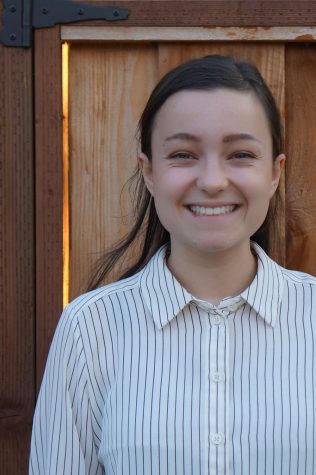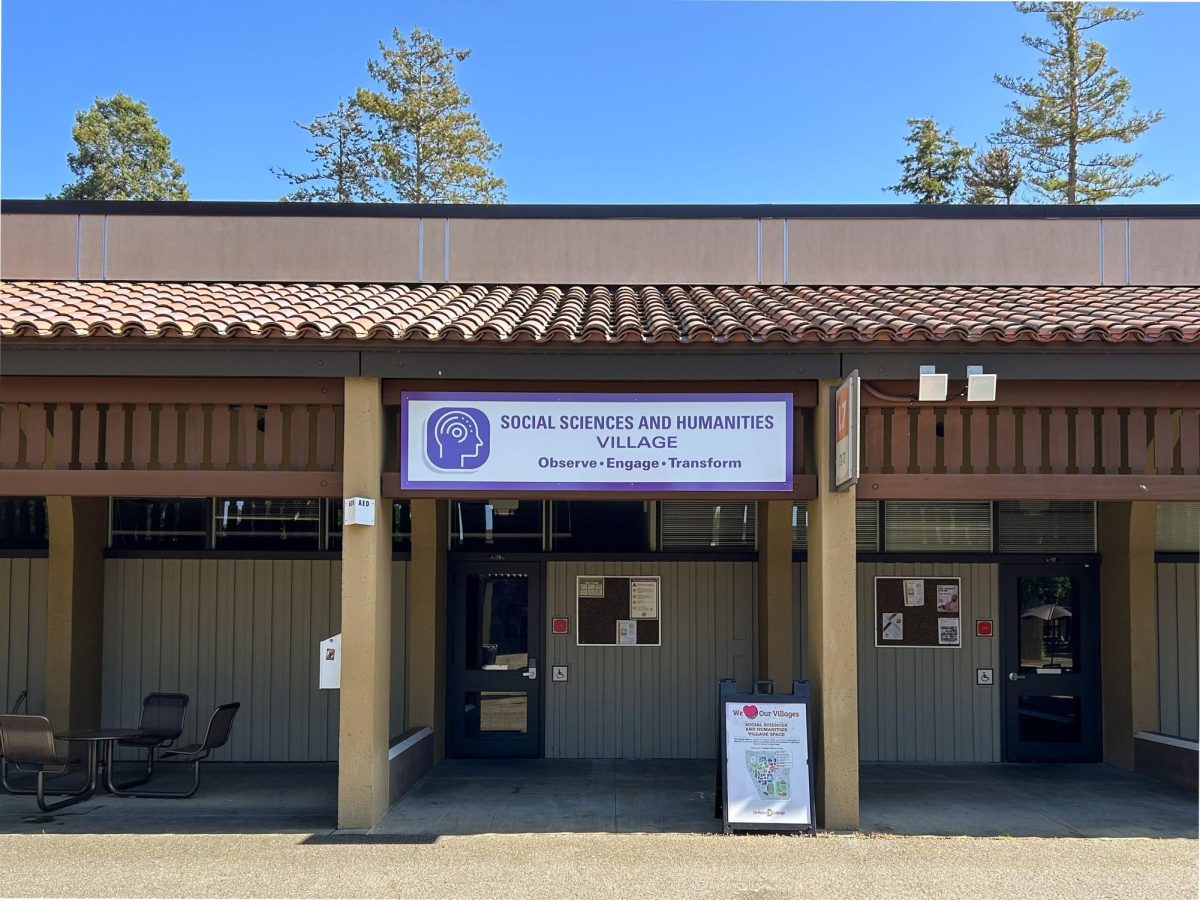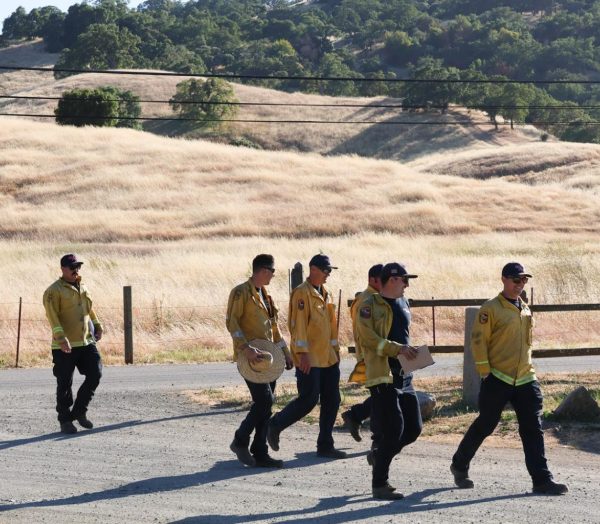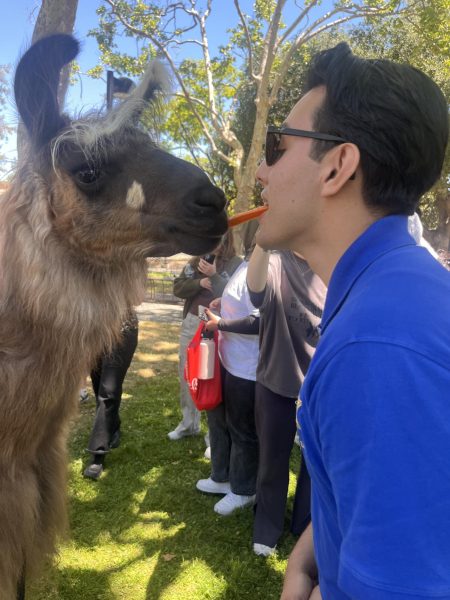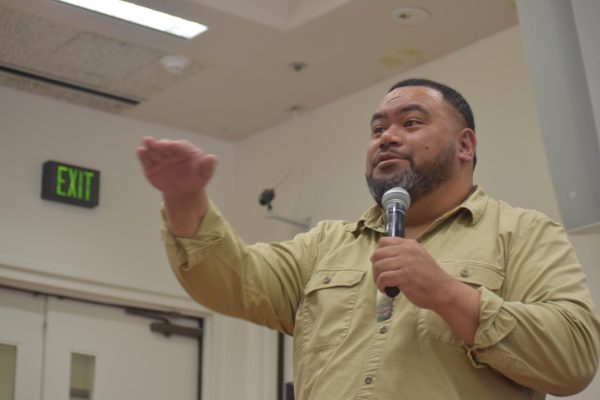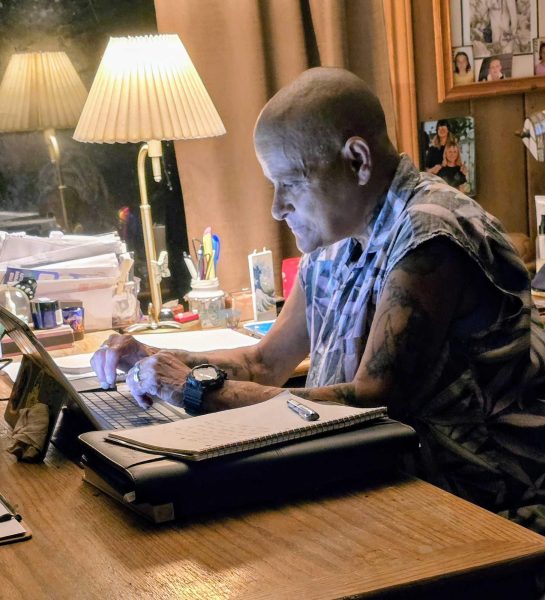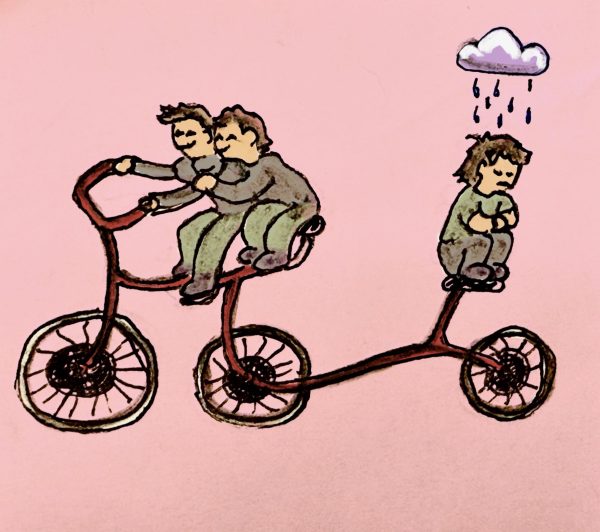DACA student experiences include working on the frontlines, worries about finances, school, safety
Abby Pavon
Abby Pavon, DACA recipent and frontline healthcare worker, is the sole financial provider for her family of four.
June 1, 2020
After coming home from working on the frontlines as a medical assistant in a psychiatric clinic, Abby Pavon, 21, psychology/sociology major, HEFAS intern and a DACA recipient, sanitizes her work clothes and hops into the shower, anxious about how she is going to provide for her family of four.
Pavon has become the sole provider for her family during the COVID-19 pandemic after her parents lost their jobs and are uncertain when they will be able to return.
As the pandemic reached the U.S., Pavon switched from working part-time to full time for about a month. She then went back to part-time and was recently told that her hours are going to be cut by around $50 dollars a week because of budget limitations.
“Having that responsibility of being economically responsible for a whole family household at the age of you know, 21 or 22, and on top of that having to go to college, and doing everything, bringing groceries in, it’s a huge responsibility,” she said.
In addition to being the sole provider for her family, Pavon is ineligible for federal financial aid from the CARES Act, due to her status as an undocumented student. Her family originally immigrated from Mexico when she was 1.
Pavon said this financial stress has come at the cost of her mental health.
“It has been very, very stressful,” she said. “My anxiety level has gone higher than before, but luckily, I also work with a few folks who are in the mental health area and they have helped with, you know, what I can do to ease down my anxiety.”
Pavon said she believes that it is inequitable for the federal government to exclude undocumented students from receiving federal aid.
“It is unfair that they’re trying to signal that (undocumented students) shouldn’t be taking on this extra federal help,” she said. “I think they really should because they are doing a lot for the economy.”
The Foothill-De Anza Community College District recently joined a lawsuit against the federal government for this and other restrictions by the Department of Education about the way the CARES Act was implemented.
On top of worrying over financial stressors, Pavon said she is also worried for her and her family’s safety, as a frontline worker during the COVID-19 pandemic.
Pavon’s job as a medical assistant requires her to interact with patients who could test positive for COVID-19. She also helps out at pop-up respiratory clinics.
Pavon said that her 13-year-old brother has become anxious about her working with exposed patients.
“It is something that is scary because I myself, being exposed to the pandemic and kind of firsthand having that experience is a little bit scary,” she said. “It’s sort of like, well you know, I signed up for this and it’s something that I like doing.”
Pavon is also a full time student, taking four courses this quarter.
Because she has had to focus on providing for her family, Pavon has been unable to put her full effort into school.
“I think my main stressor is having to not focus on school anymore and focus on providing 100% to my family,” she said. “If that means that I have to take on extra shifts, then I have to do it.”
Pavon and her family have taken advantage of resources around them, such as taking in free food from food banks.
“I have looked at resources that have been able to give us free food, and days that I do have off, I am still waking up early to go pick up that extra food,” she said. “We have tried to not eat a lot of meat as well, for the same reason that the meat prices are going super high. Pretty much wherever and whenever we’re able to get any food given to us for free at no cost, we take it in.”
The stressors that Pavon has had to face as a result of the pandemic have also taken a toll on her family. Pavon and her family have not seen her grandmother since the shelter in place order was enacted.
“I know my mom was super, super anxious, to the point where we had to reach out to her doctor to ask for help because she was not the same as before the pandemic,” she said. “Seeing that drastic change in her, really alerted me.”
Angélica Esquivel, director of Higher Education for AB540 Students, said she has seen similar stressors to Pavon’s arising in other undocumented students. De Anza College currently has over 1,300 AB540 students this quarter, according to the De Anza College Census Enrollment Comparisons Report.
“There’s less income for rent, for food, for other things, so actually there’s been students who did not return this spring quarter that I know of, because of the combination of all of those different challenges and needs that, obviously, you know, are not getting met,” she said.
Esquivel said she has seen these stressors lead to heightened mental health issues within undocumented students, who are focusing on immediate need, instead of their mental health.
“Thinking about your mental health is a privilege because that means that maybe other things in your life are OK,” she said.
Esquivel is currently providing financial resources for undocumented students through private charities such as Sacred Heart, who are giving money to those who are ineligible for federal aid.
“My hope is that they all have reached out to at least one of these different services because I know that the need is there,” she said.
Pavon said that even as she and others continue to face these stressors, she hopes the undocumented community will come together during this time.
“And to always remember that if they’re the first generation, to remember the reason why they’re doing what they’re doing, whether if it’s for yourself, for your parents or for anything,” she said.




